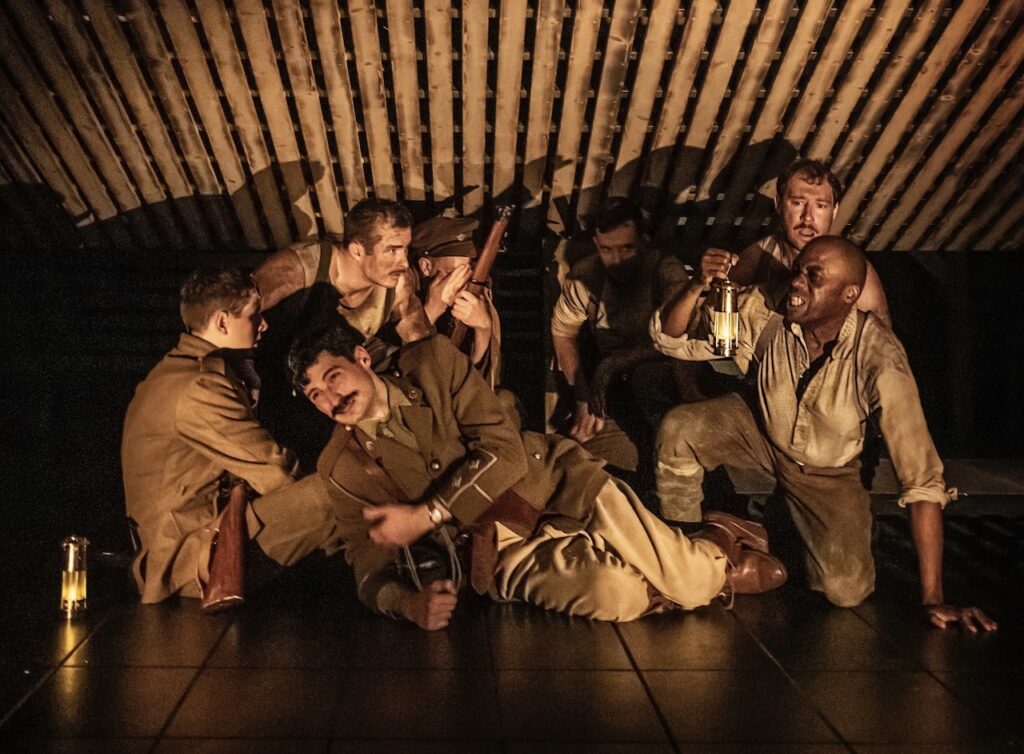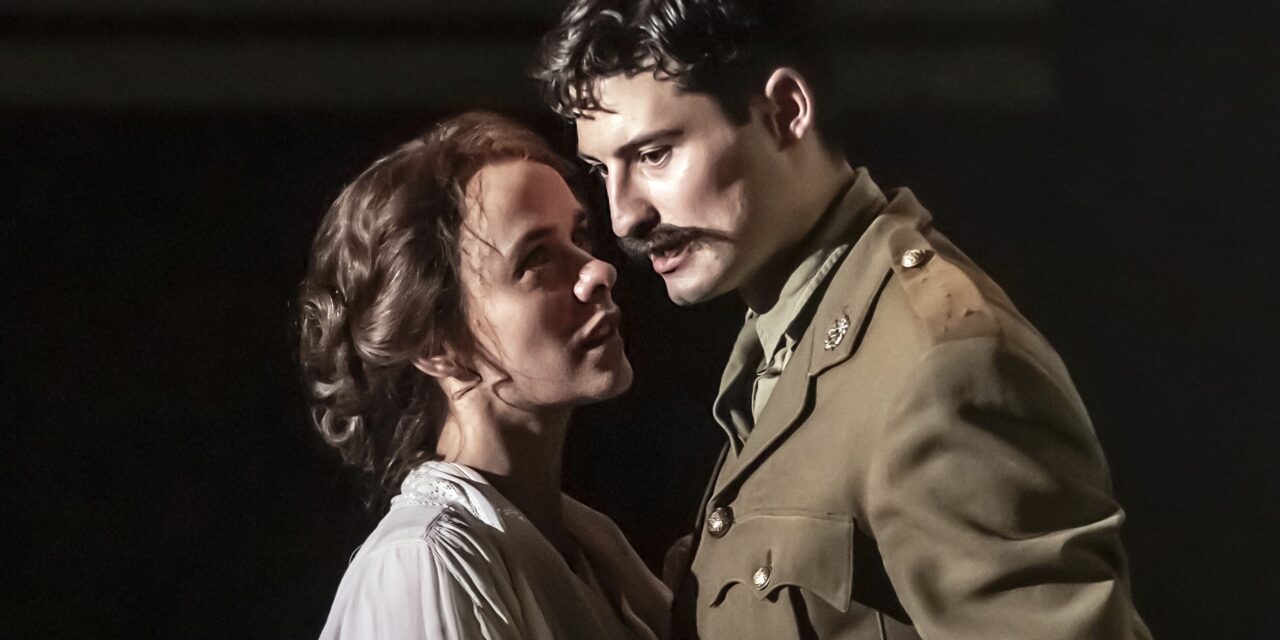
22 – 26 October
There can be few greater challenges in the world of theatre than to attempt to transfer to the stage a novel as grand in its scope and scale as Sebastian Faulks’ celebrated epic Birdsong. In tackling such a complex, multi-layered, episodic tale which stretches to 528 pages across seven interweaving parts, covering seventy years of pre-war, wartime and post-war history, how can this be accurately distilled down into two and a half hours of drama without diluting or sacrificing the novel’s key themes and messages? In truth, it can only ever be an abridged version of the original tale, an interpretation, one which must decide what to keep and what to cut. Sadly there is no room for Captain Weir here, for example. However, Original Theatre’s latest rendering of Rachel Wagstaff’s 2010 adaptation embraces this challenge in a production which loses none of the emotional power of Faulks’ mesmerising story of love, loss and courage.
Unquestionably the greatest strength of this three-act piece lies in its successful juxtaposition of the futility, bleakness and horror of war with moments of profoundly touching humanity and, at times, the most unexpected humour. Act One finds us in Amiens in pre-war northern France and focuses on the emerging romance between Englishman Stephen Wraysford – played impressively with boyish charm and energy by James Esler in his first professional stage role – alongside Charlie Russell’s deft portrayal of the lonely, oppressed Isabelle, trapped in a loveless marriage to her cruel and abusive husband, Renee Azaire. It is an engaging and touching opening, without being gripping, but the romance of the first act, ominously foreshadowing as it does the violence and danger to come, provides a counterpoint to the (literally) explosive second and third acts where the brutal realities and horrors of the First World War are grimly explored.
A surprisingly minimalist but clever set by designer Richard Kent serves to sharpen our focus on the characters themselves. The darkening mood and sense of peril is punctuated by the gallows humour and rumbustious camaraderie of the team of tunnel-digging sappers led by Jack Firebrace (a stage-stealing performance by Max Bowden), whose friendship with Arthur Shaw (Tama Phethean) is both poignant and heartwarming, as is one particular scene where potentially final letters home are brought to life through song. It is profoundly moving.
Sound, lighting and staging are fundamental to this remarkable theatrical experience. Nerve-shredding sound effects combine with clever use of light, darkness and shadow to successfully transport us into this Dantean hell of humankind’s own creation, both above and below ground. Allied to what must be a physically gruelling and exhausting performance for the cast, the show succeeds admirably in its ambitious aim of doing justice – in no small way – to the novel’s visceral and shocking evocations of war. And yet this is not a tale without hope or redemption, either in terms of love or war. Despite the countless sacrifices and the futile loss of so many millions of lives, the triumph of humanity, love, friendship and the power of the human spirit endure out of what director Alastair Whatley terms “the ashes of destruction and human madness all around us.” It all feels very prescient in war-torn 2024.
Thirty years and three million copies on from its 1993 publication, Faulks wrote Birdsong – a work of historiographic metafiction – in response to his fear that events of World War One were slipping inexorably from the public’s consciousness. In bringing this epic story to the stage for contemporary audiences in such an affecting, powerful and bittersweet way, Birdsong, and the vital memories of those who inspired it, will deservedly continue to live on.
★★★★☆ Tony Clarke, 24 October 2025
Photo credit: Pamela Raith Photography


